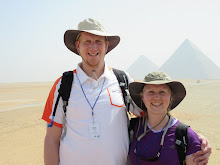Witches are
not exactly a hot topic of conversation when it comes to Lent discussions.
In fact, in
North America, the topic of witches are pretty much kept to Halloween,
Hollywood, and that Salem-thing that happened years ago.
And North Americans
who know their Bible aren’t necessarily discussing witches and witchcraft on a
daily basis either.
Yet, there
is a small but significant (and strange!) story in 1 Samuel 28 that talks about
a witch… and dare I say, gives us some insight during this season of Lent.
And Saul is
afraid -- not just a little bit scared, but extremely afraid. 1 Samuel states he was so afraid, “terror
filled his heart.” (28:5)
And here
comes the sad part. He asks God what to
do and God is silent. “The Lord did not
answer him.” (28:6) And if you’re like me, you’re
wondering why God didn’t answer him.
Didn’t Saul actually acknowledge God, and do the right thing by asking
God for help? Why is God not answering?
So
naturally, Saul is still terrified and because God is silent, Saul goes to Plan
B: consult a witch to find out what to
do next. And he had just expelled all
witches and mediums from Israel, so this would be no easy task, but nonetheless
someone tells him there is a witch in Endor.
So, Saul
dresses up in a disguise, travels to see the witch, and it all goes downhill
from there, as what he discovers with her there is the beginning of the end for
Saul.
Here is
where geography comes in handy.
When we
visited Israel, we had the pleasure of going on Mt. Gilboa and seeing a vast
amount of the land of Israel from the top of that mountain. And when we were on top of Gilboa, our leader
pointed out where Endor was, and made a point to show where the Philistines
would have been camped out awaiting their attack on the Israelite army.
Endor was
on the other side of the Philistine
army, which means Saul more than likely would have had to have gone through that army camp to get to Endor
and the witch. Quite possibly, Saul was dressing
up in a disguise so he could get through that camp, not just so he could talk
with the witch.
But remember
how he was terrified of the Philistine army?
“Terror filled his heart”?!? Yet,
he was willing to go through that very Philistine army camp to get answers from
a witch!
How can
this be? Why the risk?
I wonder if
it was because there was something more terrifying than that army…
I wonder if
Saul was even more terrified of the fact that he felt God had left him… and that God was silent.
Here lies
our problem: Saul had never said to God
he was sorry. Saul had never repented and
asked God for forgiveness. Saul never
fell at God’s feet and said sorry for the countless ways he had sinned against
God.
Just like
Adam and Eve hid and couldn’t say “I’m sorry” to God after their original fall,
Saul followed in their footsteps of this common nature of human sin not to ask
for forgiveness.
Did God
leave Saul? Scripture doesn’t say that.
And I believe God was still with Saul.
But by not repenting and telling God he was sorry, Saul had broken his
relationship with God and so far removed himself from God, that he could no
longer hear his voice.
And so Saul,
instead of humbling himself and asking forgiveness from God, did rather dare to
walk through the terrifying Philistine army to have a witch give him
answers. He would rather make a petrifying
journey to talk to a medium, than say sorry to the God of the Universe right there
with him on Mt. Gilboa.
So let’s
get back to witches and Lent… what does
all this have to do with Lent?
Many of us
know Lent is a time of introspection and taking a good hard look at our lives,
especially our sin in light of Christ's suffering. But looking at our sin and shortfalls is not easy for
a lot of us. Yes, of course we can
celebrate and have hope that God has forgiven us through the death of Jesus,
but may forget to actually ask God for this forgiveness and truly
look at the sin in our lives, repenting and saying, “I’m sorry, God.”
This is so
difficult to do. It is so against human
nature to say, “I’m sorry.” We try
justifying our sin, we try blaming others, or we just choose not to see where
we are in the wrong. But even though we
are a forgiven people, God doesn’t want us to find ourselves feeling distant
from him because we aren’t drawing near to him in repentance. Like Saul, sometimes we think it’s easier to
continue on in our sin and face our giants without God, rather than come before
God in humility, recognizing our need for him and need for forgiveness.
This Lent,
let’s each one of us take a good look at our lives and find areas where we need
to ask God for forgiveness. And as we
try to weed out this sin in our lives, it is my hope and prayer we will feel
God’s unconditionally-loving presence draw
near to all of us, not missing this opportunity of God’s nearness like Saul
did.
"Repent, then, and turn to God, so that your sins may be wiped out, that times of refreshing may come from the Lord." (Acts 3:19)





